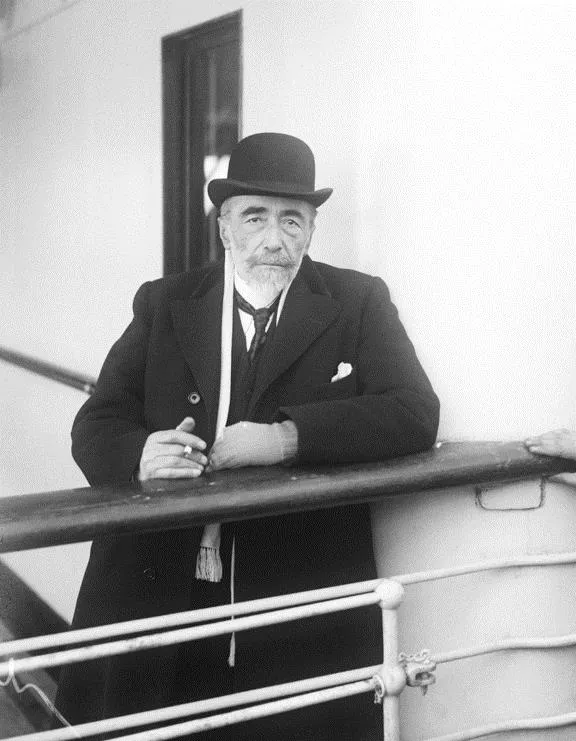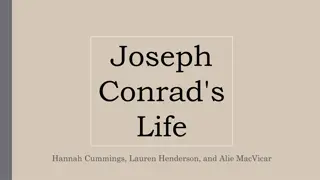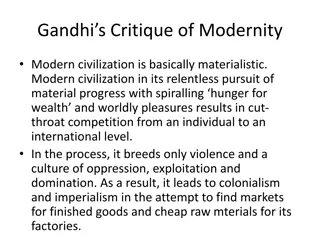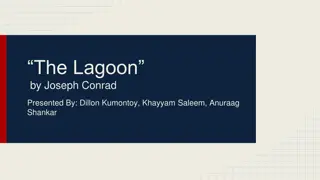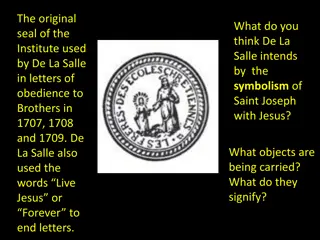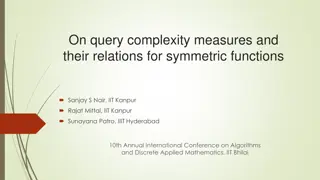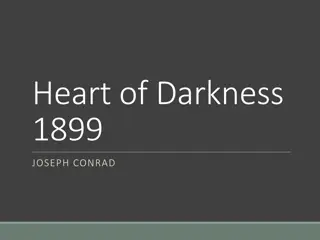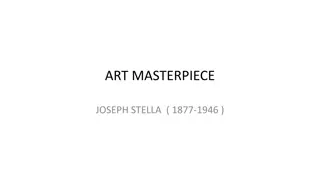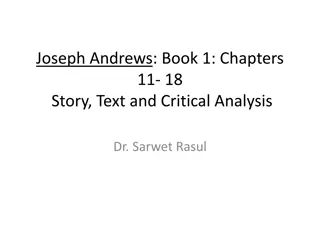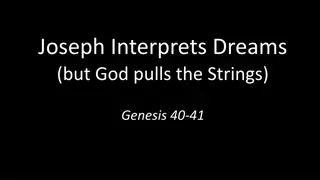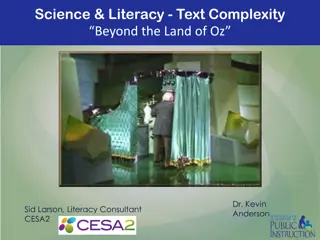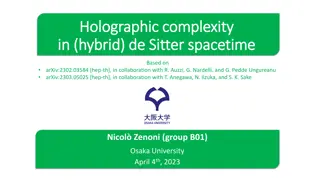Complexity and Critique in Joseph Conrad's Works
Joseph Conrad, born in Poland in 1857, was a British writer known for his critical portrayal of imperialism. His major works like "Heart of Darkness" and "Lord Jim" explore themes of societal collapse, individual crisis, and complexity of experience. Conrad's writing challenges the Victorian narrative style with fragmented perspectives and psychologically laden symbolism, positioning him as a forerunner of modernism.
Download Presentation

Please find below an Image/Link to download the presentation.
The content on the website is provided AS IS for your information and personal use only. It may not be sold, licensed, or shared on other websites without obtaining consent from the author. Download presentation by click this link. If you encounter any issues during the download, it is possible that the publisher has removed the file from their server.
E N D
Presentation Transcript
HEART OF DARKNESS HEART OF DARKNESS
JOSEPH CONRAD JOSEPH CONRAD Jozef Konrad Korzenioswi was born in Russian-occupied Poland in 1857 1874 Left for Marseilles, France, and became a sailor. 1878 Joined an English ship 1878 Became a British citizen 1890 Voyage to Africa He later abandoned the sea and devoted himself to writing MAIN WORKS Heart of Darkness (1899) Lord Jim(1900) MAIN WORKS Nostromo (1904) The Secret Agent (1907)
WRITING IN A TIME OF CRISIS WRITING IN A TIME OF CRISIS IMPERIALISM IMPERIALISM was the key issue in most of Conrad s works Justified by Western powers as a noble enterprise, bringing the light of light of civilization civilization to savages Conrad strongly criticized the imperial exploitation of Africa, which he defined as The vilest scramble for loot that ever disfigured the history of human conscience [ ]
WRITING IN A TIME OF CRISIS WRITING IN A TIME OF CRISIS Like many Late Victorian writers, he perceived that the values of society were collapsing Things fall apart, the centre cannot hold (W.B. Yeats) Conrad sought to portray the COMPLEXITY OF EXPERIENCE COMPLEXITY OF EXPERIENCE through both content and form
PORTRAYING COMPLEXITY PORTRAYING COMPLEXITY - - CONTENT CONTENT What happens to the codes we live by in society when we are on your own and we go through a moment of crisis? INADEQUACY
PORTRAYING COMPLEXITY PORTRAYING COMPLEXITY - - FORM FORM Conrad is considered by many a FORERUNNER of MODERNISM FORERUNNER of MODERNISM No more third- person, omniscient narrator (Victorian) DISRUPTION of CHRONOLOGICAL NARRATION Fragmented perspective HISTORY presented from DIFFERENT POINTS OF VIEW Frame narration Psychologically laden symbolism CHINESE BOXES TECHNIQUE






